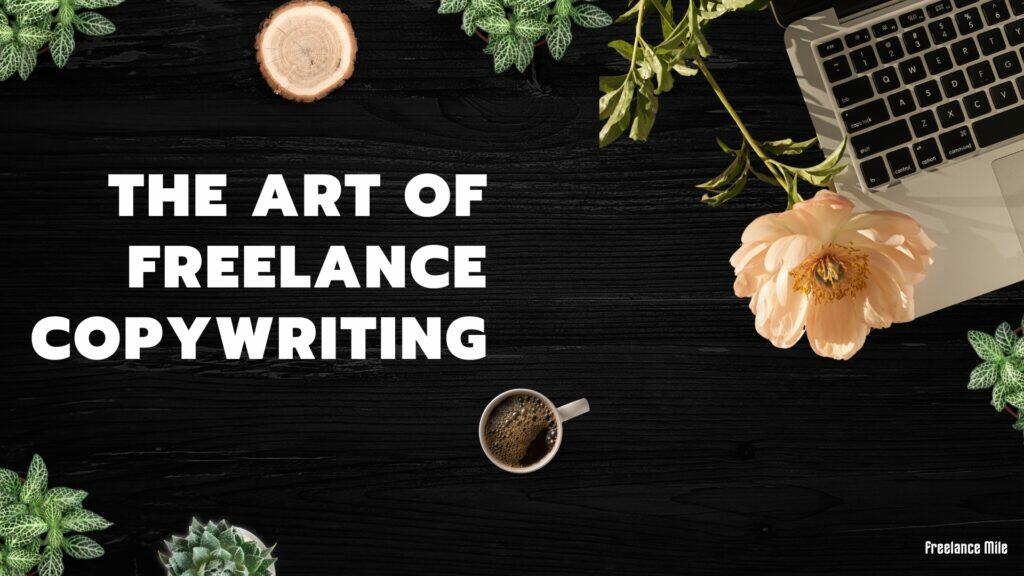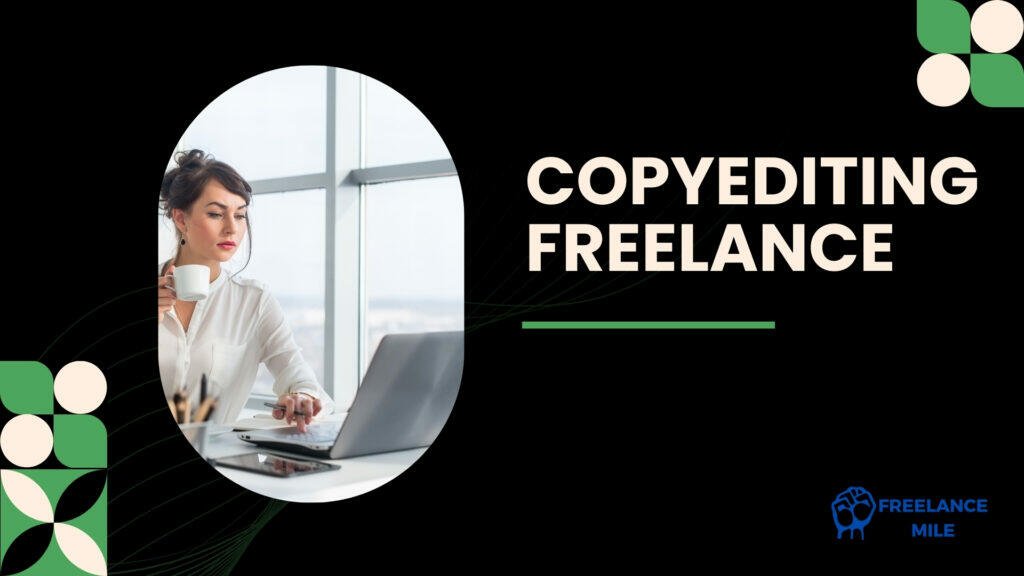Freelance grant writing is more than just a job; it’s a way to earn money while making a real difference. By helping organizations get the funds they need, you can have a positive impact.
This guide will show you how to get started and succeed in freelance grant writing.
Key Takeaways
- Freelance grant writing combines passion and profit through crafting funding proposals.
- Necessary skills include research, writing, and knowledge of the grant writing process.
- Finding success requires building a strong portfolio and effectively seeking clients.
- Navigating the grant ecosystem is crucial for identifying the right grant opportunities.
- Continuous learning and networking are key to advancement in the grant writing industry.
Exploring the Fundamentals of Freelance Grant Writing
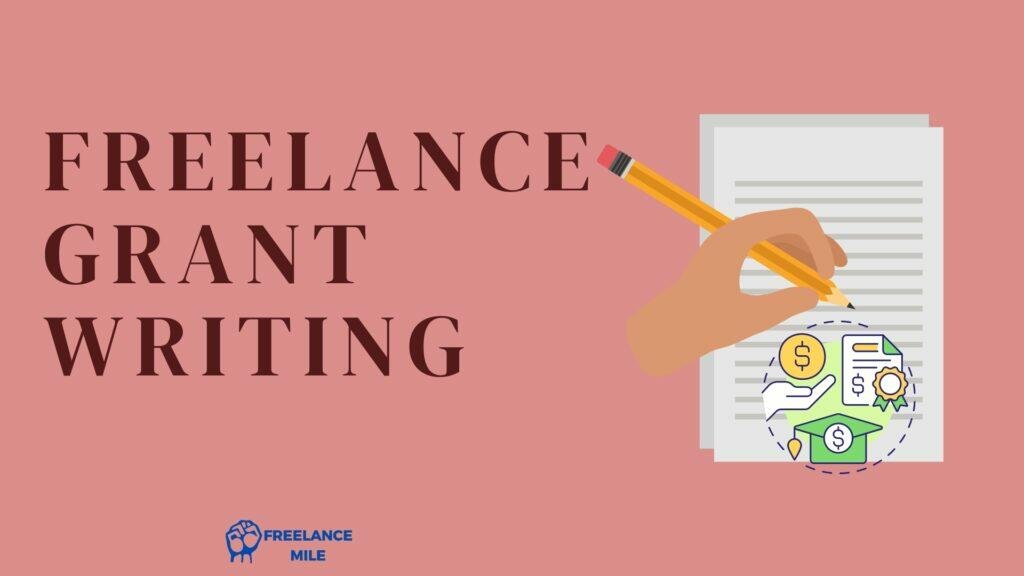
Starting a career as a freelance grant writer opens a unique path in the writing world. It blends narrative storytelling with precise technical skills. As a grant writer, you bridge visions and reality for groups that need funding.
Grant Writing vs Other Writing Careers
Grant writing stands out from other writing careers. Technical writers work on manuals, and UX writers improve user experiences. But, grant writers craft proposals that meet strict guidelines and tell engaging stories. Your words can get critical funding for big projects.
Essential Skills for a Freelance Grant Writer
To be a successful freelance grant writer, you need many skills. Writing proposals is key, but there’s more. You must use grant writing resources and understand complex needs. Your proposals need to be clear and match the funder’s goals.
| Skill | Description | Relevance to Grant Writing |
| Research Ability | Skilled in exploring and compiling data relevant to the grant topic | Enables crafting a grant proposal grounded in factual evidence |
| Strategic Thinking | Capacity to plan and structure proposals aligned with funders’ priorities | Increases the likelihood of a proposal resonating with the funding agency’s goals |
| Attention to Detail | Meticulous in following application guidelines and formatting requisites | Essential for meeting compliance and avoiding disqualification |
| Storytelling | Ability to weave compelling narratives that illustrate the project’s need and potential impact | Transforms a proposal from a mere request for funds into a powerful story |
| Communication Skills | Clear and effective written and verbal communication | Fosters effective collaboration and clarifies project objectives |
Mastering the Art of Persuasive Grant Proposals
Learning to be a great freelance grant writer is more than just knowing the basics. It’s about understanding the deep skills needed to create a proposal that not only shares info but makes people want to give. Let’s explore how to build a winning proposal.
Key Components of Successful Grant Applications
Top grant proposals mix several important elements that share the project’s goal clearly. Here’s a look at what these are:
| Component | Description | Significance |
| Statement of Need | A concise explanation of the problem your proposal will tackle. | This shows why your funding request is critical. |
| Project Objectives | The specific outcomes your project aims to achieve. | Objectives point out the purpose and direction of your plan. |
| Methodology | A step-by-step plan on how your project will meet its outcomes. | A clear method shows the project can succeed. |
| Budget | An itemized list of expected costs and income. | A well-thought budget proves you can manage funds wisely. |
Keeping these components in mind forms the base of a compelling grant proposal. A good proposal is like a map to success. It shows funders how their support will turn your vision into a win-win reality.
Strategies for Crafting Impactful Narratives
To really make your grant stand out, it needs to do more than just exist; it must connect. Adding these approaches to your story will grab funders’ attention:
- Humanize Your Proposal: Show how real people or communities will benefit from your project. Using real stories or feedback makes your plea stronger.
- Data-Driven Argumentation: Back up your proposal with facts and reliable data. Solid evidence strengthens your case.
- Address the Funder’s Interests: Make sure your story matches what the funder wants to achieve. Show them investing in your project is a great choice.
- Clear and Compelling Writing: Simple beats complex. Be clear to make sure your message is understood. Avoid jargon as it can confuse more than it clarifies.
A powerful narrative weaves through your proposal, tying everything together with purpose and clarity. As you get better at your grant writing, always aim to tell a story. This story should motivate others to make a difference and take action.
Free Grant Proposal Templates
If you are interested, you can download free grant proposal templates from the websites provided below:
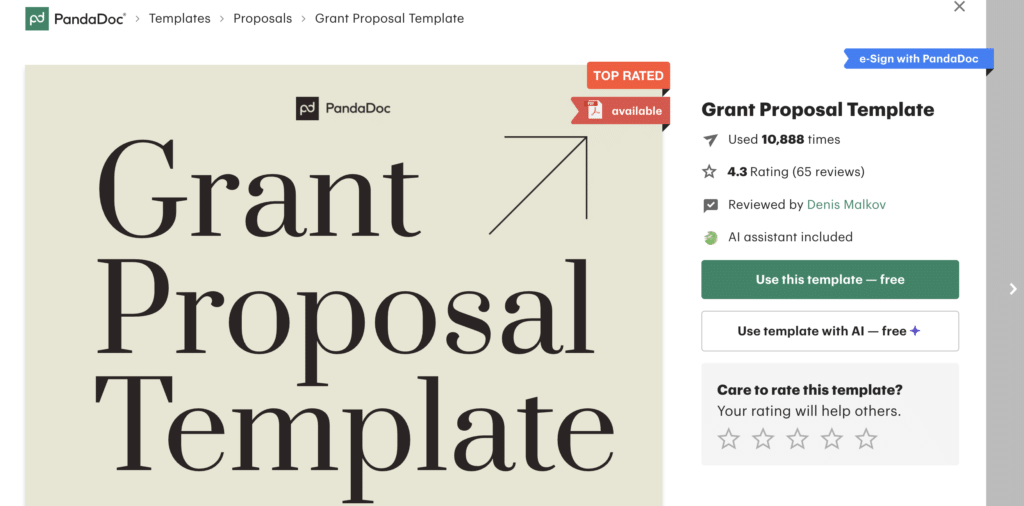
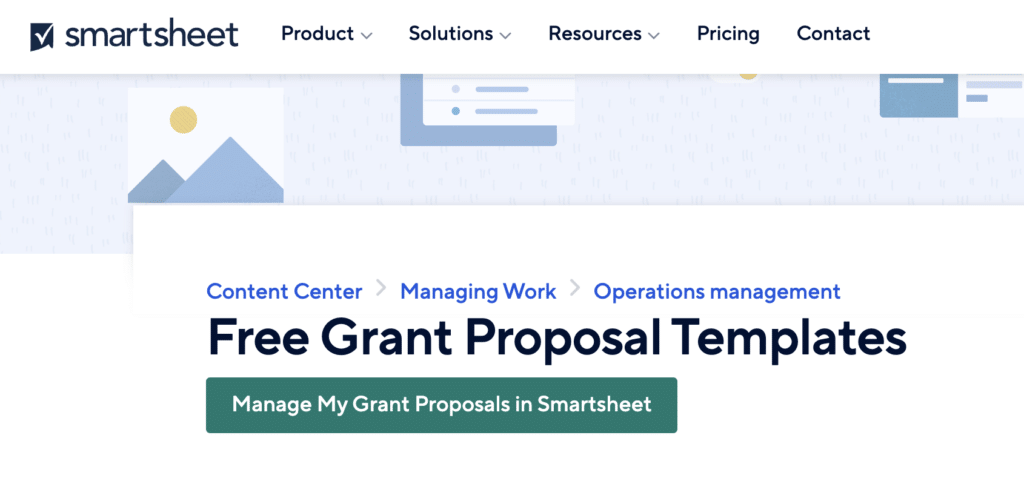
Navigating the Grant Ecosystem
Exploring the grant world is like going on an adventure. You need to know about the different grants out there. It’s vital to understand the power of federal grants, foundation awards, and corporate giving.
This knowledge is a must for anyone looking to get grant funding for their projects.
Federal grants bring a lot of money but come with tough competition. Many are trying to get funding from the federal budget.
These grants look to support projects that match national interests. Foundation grants, while generally smaller, face less competition. Corporate grants focus on business projects that meet their social goals. These can be a good source of money too.
Here’s a quick comparison to guide your search for the right grant opportunity:
| Grant Type | Typical Funding Size | Competition Level | Project Alignment |
| Federal Grants | Varies widely, often large | High | National priorities and public programs |
| Foundation Grants | Typically smaller than federal grants | Moderate to low | Varied, depend on individual foundation focus |
| Corporate Grants | Dependent on corporate budgets | Varied | Business initiatives, CSR-aligned projects |
Every grant giver has its own goals, rules, and selection ways. It’s on you to find the best match for your project or group’s objectives. Get to know each grant well, improve your proposals, and adjust your strategy. This will boost your chances of getting the grant money you need.
Building a Strong Foundation in Freelance Grant Writing
If you want to build a strong base for your freelance grant writing career, consider taking a quality grant writing class or getting a grant writing certification. These steps do more than just improve your resume. They give you the skills and knowledge needed to write winning grant applications.
Acquiring Necessary Certifications and Training
To show potential clients your commitment and expertise, completing a certification course is beneficial. By joining a grant writing certification program, you’re enhancing your skills. You also learn the details of the grant application process and how to tackle complex requirements.
Plus, knowledge from Google’s UX writer courses can further your abilities. This makes sure your proposals are not only convincing but also focused on the user’s needs.
Creating Your Grant Writing Portfolio
Your portfolio showcases your grant writing skills. Start with successful grant applications you’ve crafted. Be sure to include a variety of projects to show your range in technical writing. For those aiming to be Google UX writers, include work that demonstrates your user-centered writing skills.
Remember, your portfolio should grow with your career. This keeps it current with your most effective work.
Branching Out: Specializing in Different Sectors
As a freelance grant writer, focusing on certain areas can really help your career. When you become an expert in fields like education, healthcare, environmental efforts, arts and culture, community development, or backing a nonprofit organization, your work stands out.
You offer deep knowledge in your proposals. This makes you more attractive to clients in these areas. Choosing a specific field does more than improve your skills. It also helps you find and get small business grants and other funds specific to these sectors.
| Sector | Benefits of Specialization | Popular Grant Types |
| Education | Work with institutions that improve learning and research, affecting future generations. | Scholarship funds, educational program development, and research grants. |
| Healthcare | Help projects that better patient care, healthcare systems, and medical research. | Community health improvement, medical equipment upgrades, and healthcare studies. |
| Environmental | Join the sustainability movement with projects that protect our planet. | Conservation efforts, renewable energy projects, and environmental education. |
| Arts and Culture | Secure funds for cultural programs that enrich communities through the arts. | Artistic productions, museum and gallery exhibitions, and cultural festivals. |
| Community Development | Support community revitalization to better life quality and boost economic growth. | Urban development, community service programs, and local business support. |
Finding the right grants and crafting your proposals is incredibly satisfying. For example, a great grant proposal for a nonprofit organization involved in environmental conservation might save a local area. Or, a well-researched proposal for education could get new gear for a school’s science lab that really needs it.
Your knowledge in these fields is crucial for bringing about change and growth. Whether it’s aiding groundbreaking healthcare projects or being part of community development, your deep understanding is valuable. And in the competitive grant writing world, it makes you stand out.
The Journey to Becoming a Professional Grant Writer
Starting your career in grant writing through volunteering or internships is crucial. These opportunities give you valuable experience, similar to participating in a writing contest. They allow you to engage your skills in the real world. By helping fundraising professionals seek grant money, you sharpen your writing skills. You also learn about the grant application process and what funders look for.
Volunteering and Internship Opportunities
Being a volunteer or intern puts you in a unique network of passionate pros. You get to dive into the culture of nonprofits and learn what makes an application strong. Plus, you directly help secure funding for their missions. This is when your experience in grant writing starts to grow. You apply what you know and learn from both successes and challenges in the field.
Transitioning from Volunteering to Paid Jobs
As you gain more experience, the doors to paid grant writing jobs open up. Through hard work and the ability to secure grants, your portfolio grows. This shows your skill and determination. Building a reputation for quality work helps you become a sought-after writer. You’ll be able to ask for professional fees for your grant writing services.
| Experience | Benefits | Outcome |
| Volunteering | Real-life exposure to grant writing, Networking with seasoned professionals | Building a solid portfolio, Understanding donor expectations |
| Internship | Hands-on learning, Mentorship from experienced grant writers | Enhanced grant writing experience, Sharpened proposal crafting skills |
| Paid Roles | Earning while contributing to meaningful projects, Establishing a professional footprint | Credibility as a grant writing expert, Broader access to grant opportunities |
Starting by joining writing contests for fundraisers or jumping into nonprofit funding is valuable. Each step forward improves your understanding and effectiveness in getting grants. The journey from an aspiring writer to a pro is marked by dedication and learning. You grow capable of making significant impact with your writing.
Setting Up Your Freelance Grant Writing Business
Starting a career in freelance grant writing means a mix of freedom, meaningful work, and pay. But where to begin?
Here are steps to create your freelance grant writing business and turn your writing skills into a booming business.
First, know your business goals well. What you aim for guides everything, from choosing clients to picking grant writing jobs. Do you want to focus on a specific field, or serve various clients? Clear goals make your journey smoother.
Then, figure out your services. As a freelance grant writer, you can do more than write proposals. Think about offering consulting, hosting workshops, or editing. Knowing your offerings helps you tell clients how you can help them.
It’s crucial to set the right fees that show your skill and value. Look at the market to choose competitive rates. Being open with clients builds trust early on.
Handling business admin is key. Get any licenses needed, know your taxes, and organize your work well. This makes you look professional and dependable to clients.
To find your place in the market, know who your services suit best. Could it be non-profits, schools, or government bodies? Focusing on a group helps your expertise stand out.
Having clear business practices is important, too. Make templates for contracts and proposals to make your work easier. This also shows you’re organized, which clients like.
In shaping your business, include your personal goals and values. If lasting client relationships matter to you, include that in how you work with clients. Running a business that matches your values brings satisfaction and attracts like-minded clients.
Becoming a top freelance grant writer isn’t just about writing well. It’s about building a business that fits your career and life dreams.
Marketing Your Grant Writing Services Effectively
To shine as a freelance grant writer, people must know about your services. Today, being online is essential, not just a bonus. A strong online presence can lead you to success, putting your services in view of important people.
Developing an Online Presence
Begin with a professional website that shows off your skills and shares client success stories. Your website is key to your online marketing, showing your expertise and value. Besides your site, add value online by sharing your knowledge through blog posts, webinars, and e-books for your audience.
Utilizing Social Media and Professional Networks
Social media boosts your reputation as a go-to grant writer. Engage on platforms like LinkedIn, Twitter, and Facebook, where grant conversations happen. Joining Grant Professionals Association and American Grant Writers Association groups offers networking chances. You’ll learn and keep up with the latest in grants.
| Platform | Purpose in Grant Writing Marketing | Tips for Engagement |
| Professional Networking | Connect with industry leaders, join grant writing discussions, and post original content. | |
| Real-time engagement | Participate in relevant hashtag conversations like #GrantChat and share tips on grant writing. | |
| Association Forums (e.g., Grant Professionals Association) | Industry-specific networking | Share insights, ask questions, and contribute to discussions within the grant writing community. |
| Your Blog | Thought Leadership | Write articles that showcase your expertise and can solve potential client problems. |
Keeping up relationships is as important as starting them. Stay engaged to remain a top choice for clients. As you grow online, so does your credibility and success in grant writing services.
Advancing Your Career with Continuous Learning and Networking
To grow in the grant profession, it’s vital to keep learning and network a lot. Keeping up with changes in grant writing helps your freelance business thrive. When you understand what nonprofit organizations need, you become a key player in the community.
Staying Current with Industry Trends and Practices
The grant writing field is always changing. It’s important to stay up-to-date. Learn new things and improve your skills. This way, you’ll be ready to answer any interview question. Plus, it makes you more confident and valuable as a freelance grant writer.
Networking with Nonprofit Professionals and Organizations
Building connections is crucial in the nonprofit world. It opens doors to opportunities. Go to events, join groups, and talk with others in your field. These interactions deepen your understanding and help you find potential clients.
Note: It is essential to form genuine connections, offering your experience and knowledge as a way to add value to your network rather than approaching each interaction as a means to an end.
| Networking Strategy | Benefits |
| Engaging with Professional Associations | Opportunities for education and industry recognition |
| Attending Sector-Specific Conferences | Direct access to trends and experts in the field |
| Online Community Participation | Insights into the experiences and solutions of peers |
| Mentorship | Guidance and personalized feedback from experienced grant writers |
| Volunteering | Hands-on experience and in-depth understanding of nonprofit needs |
Keep sharpening your skills & building your network in the nonprofit area. This will take your freelance grant writing to new levels. Always learn and connect with others, and you’ll achieve great things.
Conclusion and the Future
Choosing the freelance grant writing path lets you earn money and create positive change. It’s more than a job – it’s a way to help organizations and communities achieve their dreams. Learn the craft well to be a key player in bringing resources to those who need them most.
As you move forward, you’ll do more than write grants. You’ll navigate the changing world of grant submissions. The need for your skills will grow. Stay sharp, network, and adjust to new grant processes to enhance your career.
Soon, the demand for skilled grant writers will increase, along with proposal complexity. Keep learning and focus on what excites you. Hard work, know-how, and a smart approach are key. They’ll help you not just write, but create stories of success. Push forward in your grant writing career, making a big impact with your words.
FAQ
What are your values as a professional grant writer?
As a professional grant writer, you uphold values such as integrity, honesty, and transparency in all your work. You believe in maintaining the highest standards of professionalism and ensuring that your proposals are truthful & accurately reflect the needs & goals of the projects you write for. You are dedicated to staying updated with the latest trends & methodologies in grant writing and continuously refining your skills to provide the best possible service to your clients.
How much can you earn as a freelance grant writer?
In terms of earnings, as a freelance grant writer, you can potentially earn a monthly income of $5,000, according to a conservative estimate. However, your exact pay will vary based on factors such as your experience level, certifications and other skills, the opportunities you find, the budget of your clients, and more. It’s important to note that this number is a median and includes both freelancers and in-house grant writers, with some individuals in both categories making much more or less than this median


